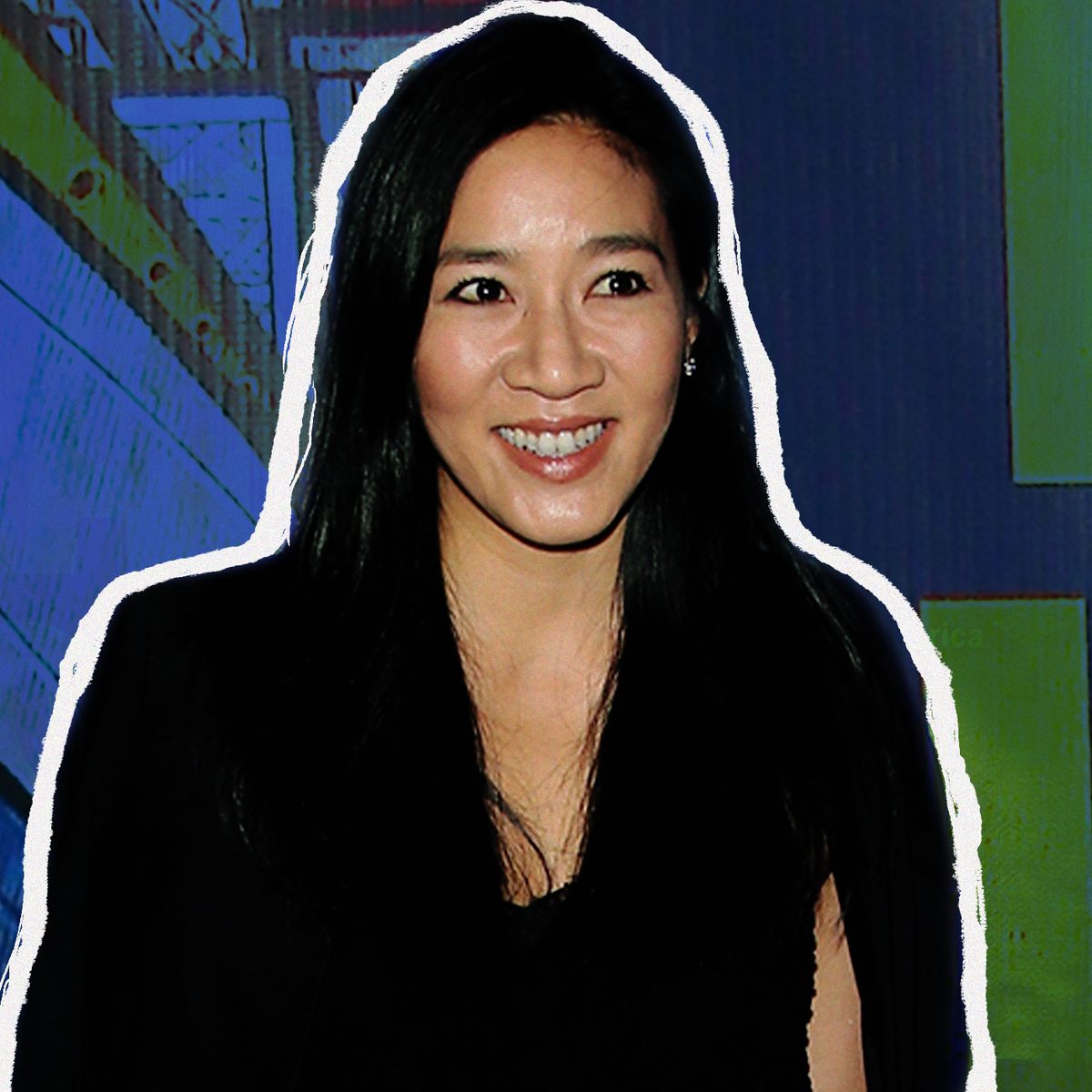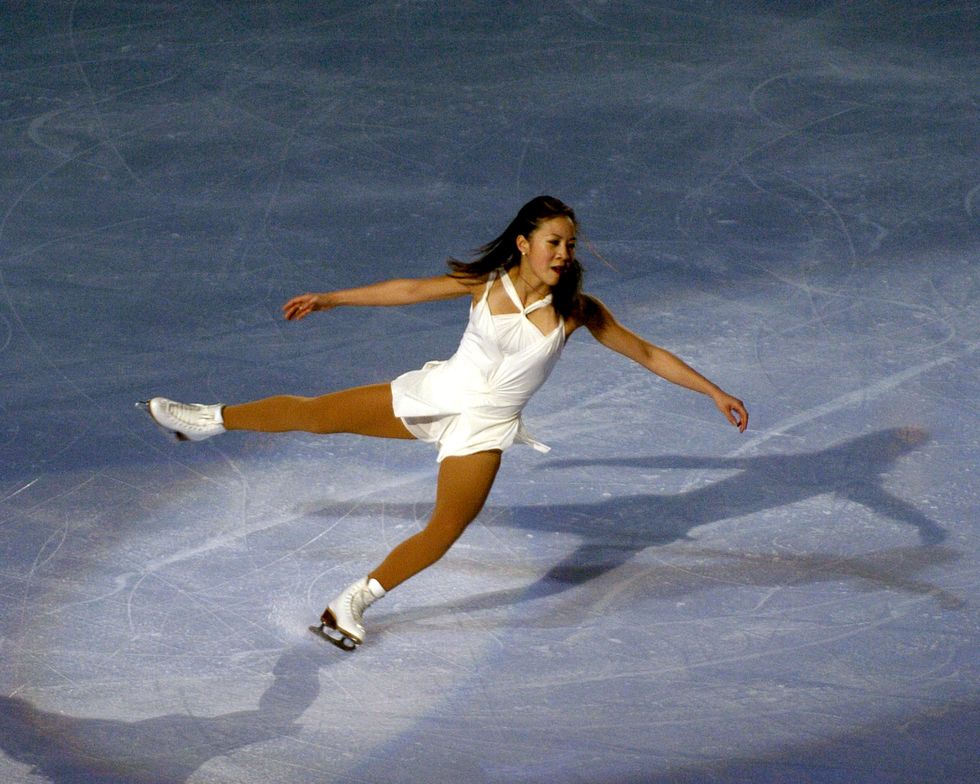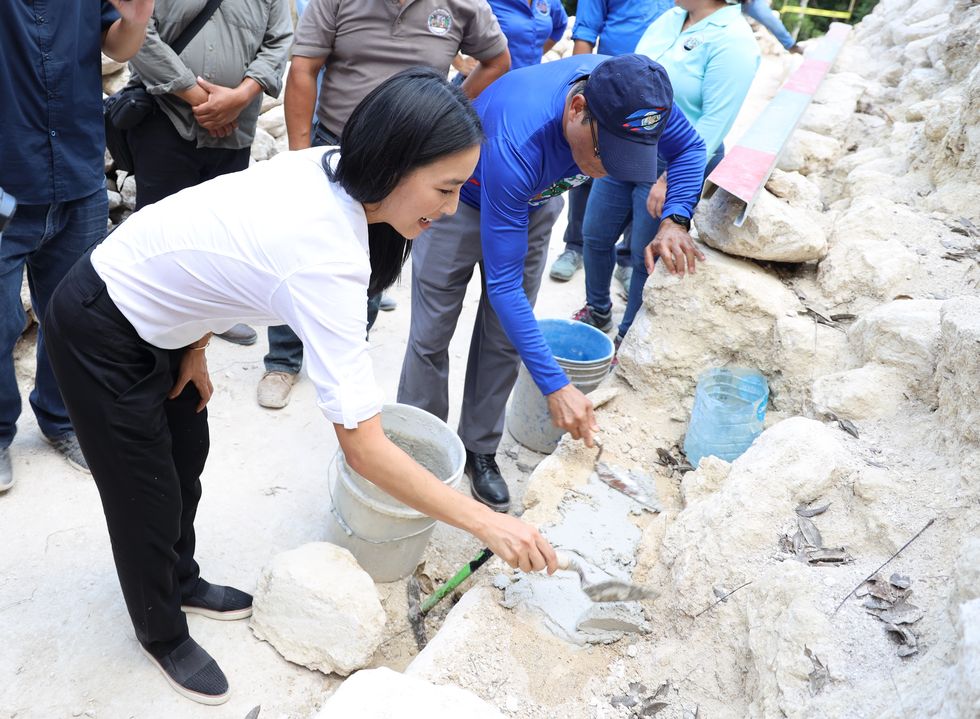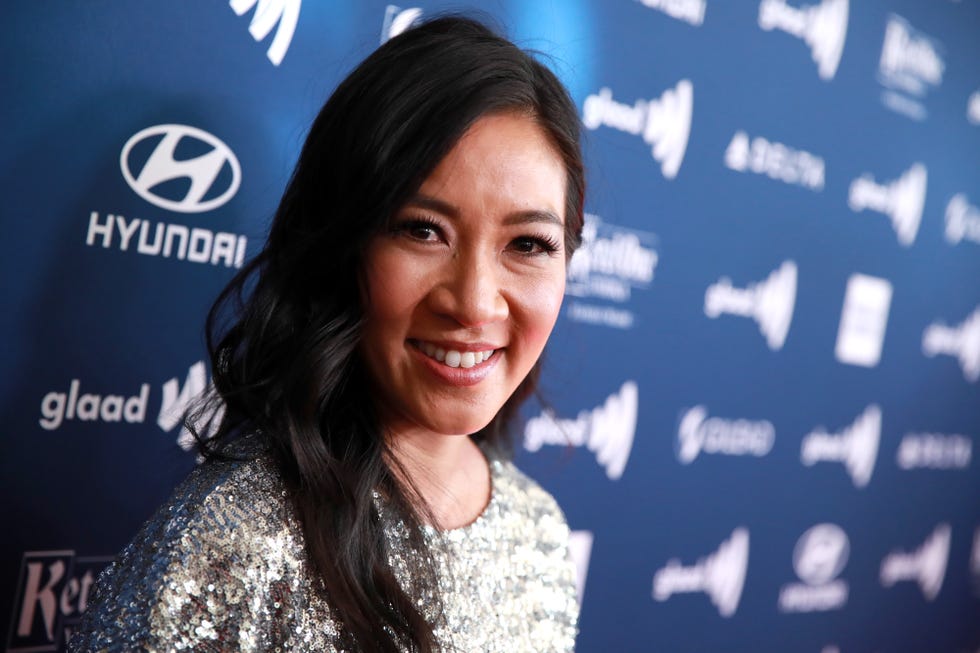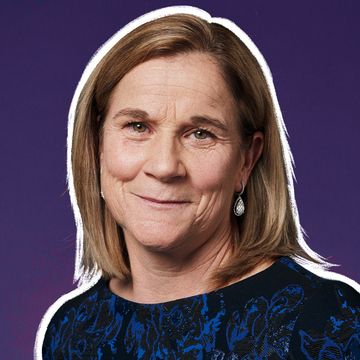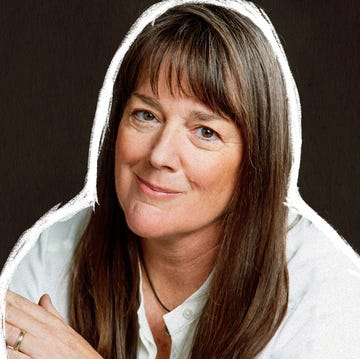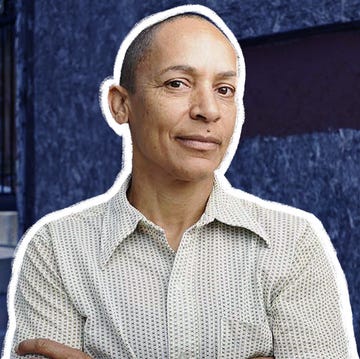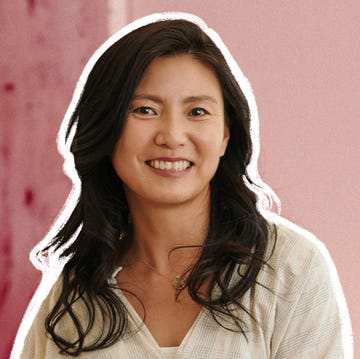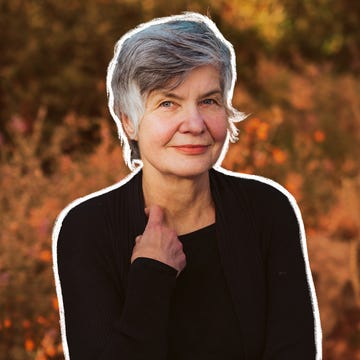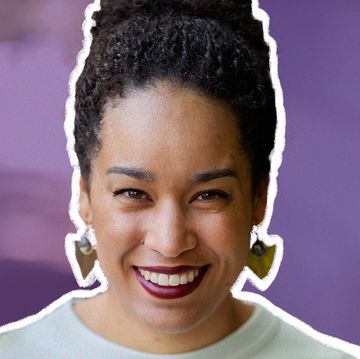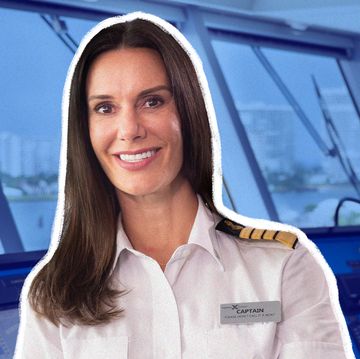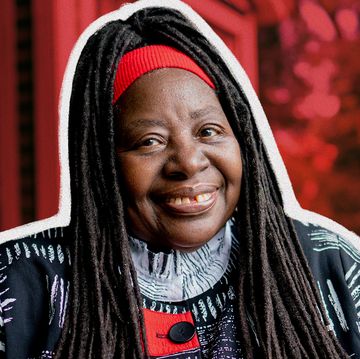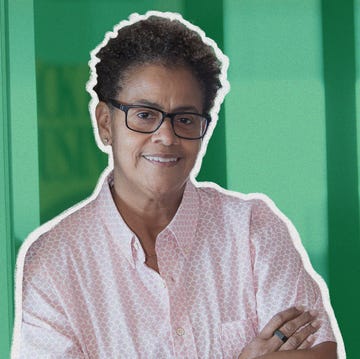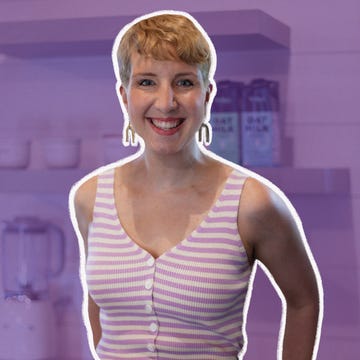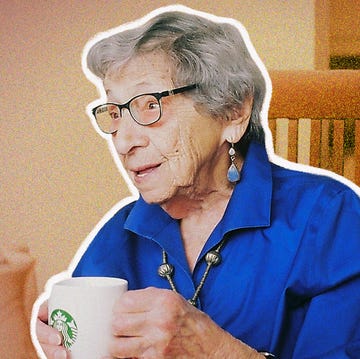In the ongoing Shondaland series Head Turners, we meet interesting women from every facet of life who are crushing it in their careers. From artists and tech mavens to titans of the boardroom, these women are breaking barriers, and they’ll share how you can too.
The collective memory of Michelle Kwan always puts her on ice, enveloped in chiffon as she glides in defiance of time. Since retiring from the sport 17 years ago, the two-time Olympic medalist and figure skating Hall of Famer has entered her second act in the political world with a new distinguished title.
“I am a diplomat,” Kwan says proudly. Officially, she is the ambassador extraordinary and plenipotentiary of the United States to Belize. Kwan has been living and working in the Central American nation since December as its first Asian American U.S. ambassador.
Kwan's second act was cemented in 2006 as an undergraduate at the University of Denver’s Josef Korbel School of International Studies when she was first appointed envoy for U.S. public diplomacy.
On and off the ice, Kwan has always represented her country with dignity. During a recent video call from the embassy, Kwan talked to Shondaland about how sports intersects with politics, what it’s like being a working mom, and why AAPI representation matters in diplomacy.
LYNDA LIN GRIGSBY: How has your journey been from figure skater to diplomat?
MICHELLE KWAN: From the age of 5 years old, when I first stepped onto the ice and fell in love with it, to being competitive at 7, it was the only thing I could really think of for 20 years. Everything I did was to see how I could be the best athlete that I could be. Simply put, it’s hard transitioning.
I was appointed the first public diplomacy envoy when I was 26. It taught me so many life lessons of hard work and perseverance. These ideals guide me every day and have prepared me for this incredible chapter.
Surprisingly, international diplomacy and international athletics actually have a lot in common. Both require a lot of hard work and practice to represent your country on the world stage. Both require a universal commitment to fair play. And just as importantly, both sports and diplomacy bring people together from all walks of life while building multinational and cross-cultural ties.
LLG: What’s it like to live and work in Belize?
MK: It’s a little bit surreal. I arrived in Belize in early December, and I could definitely see why Belizeans and others refer to this country as “the jewel.” I’ve been so impressed by the diversity. It has a large youth population, and it has a long tradition of democracy and respect for different cultures. There’s an extraordinary amount of biodiversity that can be found here, from the marine to terrestrial ecosystems, and its forests and mangroves, which play a huge part in combating climate change here. My brother and his family just visited. We went snorkeling. It has the second largest barrier reef. It almost looks too beautiful to be real.
LLG: Many people only know about diplomats through fictional movies and TV shows, but what’s the job really like for you?
MK: At times, it can feel like a movie, but it’s a 24-7 job. I live and work here. I am completely immersed in the culture, people, and delicious food. And yes, I get to oftentimes explore some of the beautiful things that this country has to offer. People think that I’m just on the beach drinking piña coladas with a little umbrella.
I love my work. I feel that the most incredible thing is being able to connect with Belizeans. Diplomacy does have its own set of challenges, but my journey overall so far since December has been incredibly rewarding professionally and personally. I have the unique opportunity to engage with people from all walks of life. And the work we do is strengthening and expanding the relationship between the United States and Belize.
We are serving every single day. We’re representing every single day. As long as we’re here, we’re representing. Anything can happen on any given day. A hurricane, for example, can cause a situation. A million American tourists come to visit, so whether it’s on cruise lines or people vacationing, managing the security of Americans and the staff here can be quite the job.
LLG: Your job brings you to the table with powerful world leaders. Do you ever feel impostor syndrome?
MK: I learned so many life lessons through sports. I think it helped build my confidence at a very early age. I don’t think confidence is something that one person has, and the other person doesn’t. I think you have to work really hard at it and show up prepared.
In skating, I’m not going to show up confident at the Olympic Games if I didn’t put in the effort. I don’t think I have that impostor syndrome. I think it’s because if I don’t know, I will know. If I don’t have a skill set, I will attain it. I try my very best to meet my own expectations of who I want to be. If anything, I learned that being yourself is so critical. I’m not perfect. I have imperfections. I make mistakes, and I learned from them. I try to lead by example.
LLG: You are the first Asian American woman to serve as ambassador to Belize. There are 193 ambassadorship positions, six of which are filled by Asian Americans. How important is diversity and representation in your field?
MK: It’s a very important question and something that I have thought a lot about. Now that it is AAPI Heritage Month, it’s even more at the forefront of my thoughts. Representation is something that I try to lead by example. In my role, whether it’s fighting for more diversity and women’s equality, I think it’s just getting more powerful. Diversity should be something that we celebrate, and it should be a strength. So yes, I think there could be more AAPIs represented. It’s a positive step in the right direction. But you know, there still needs to be more.
LLG: With a 2-year-old child, how do you achieve work-life balance?
MK: This is a job that is quite the undertaking, and oftentimes, we’re dealing with very tough issues. I was initially quite nervous whether or not I could do it all: be able to take care of my daughter and move to another country. I often think of my parents and how they immigrated to the United States.
Work hard. Play hard. Play is important. I like to work out no matter what. I do yoga. I do Pilates. And getting enough sleep is also important. Since I arrived [in Belize], I actually go to bed earlier. It’s been a game changer. Kalista goes to bed at 9:30 [p.m.], which is late for a little one, but she’s sleeping throughout the night, so I go to bed soon after.
LLG: Your posts on your personal social media account have stayed true to who you are, especially when you provide glimpses of what you’re making in the kitchen.
MK: Yeah, I love it. I’m learning to make certain dishes. I made chili. I made enchiladas.
It’s often hard with the pressures of society and what other people think of you. I think it’s so important. It’s something that I hope to instill in my daughter, to be your true self, because it’s so hard to live a lie every day or to try to live a certain way that’s not genuinely who you are.
LLG: What is your advice for people who want to become a diplomat?
MK: Over the years, I have met a lot of young kids that looked up to me wanting to be an Olympian. I love that sense of hope and dreams and that kind of aspiration because I find it so beautiful. We need good people in politics. We need more people in service. I always encourage young people, whatever their wishes or their aspirations might be, just to continue.
LLG: What will be your next career pivot?
MK: I don’t know what my next step will be in my life, but I always have that open mindset of being flexible because that is such a beautiful thing, to be curious about certain things and be able to explore. That’s what life is all about, right?
Lynda Lin Grigsby is a Southern California-based writer who has contributed to NBC News, Parents, PopSugar, Scary Mommy, SheKnows, and Pasadena Magazine.
Get Shondaland directly in your inbox: SUBSCRIBE TODAY
